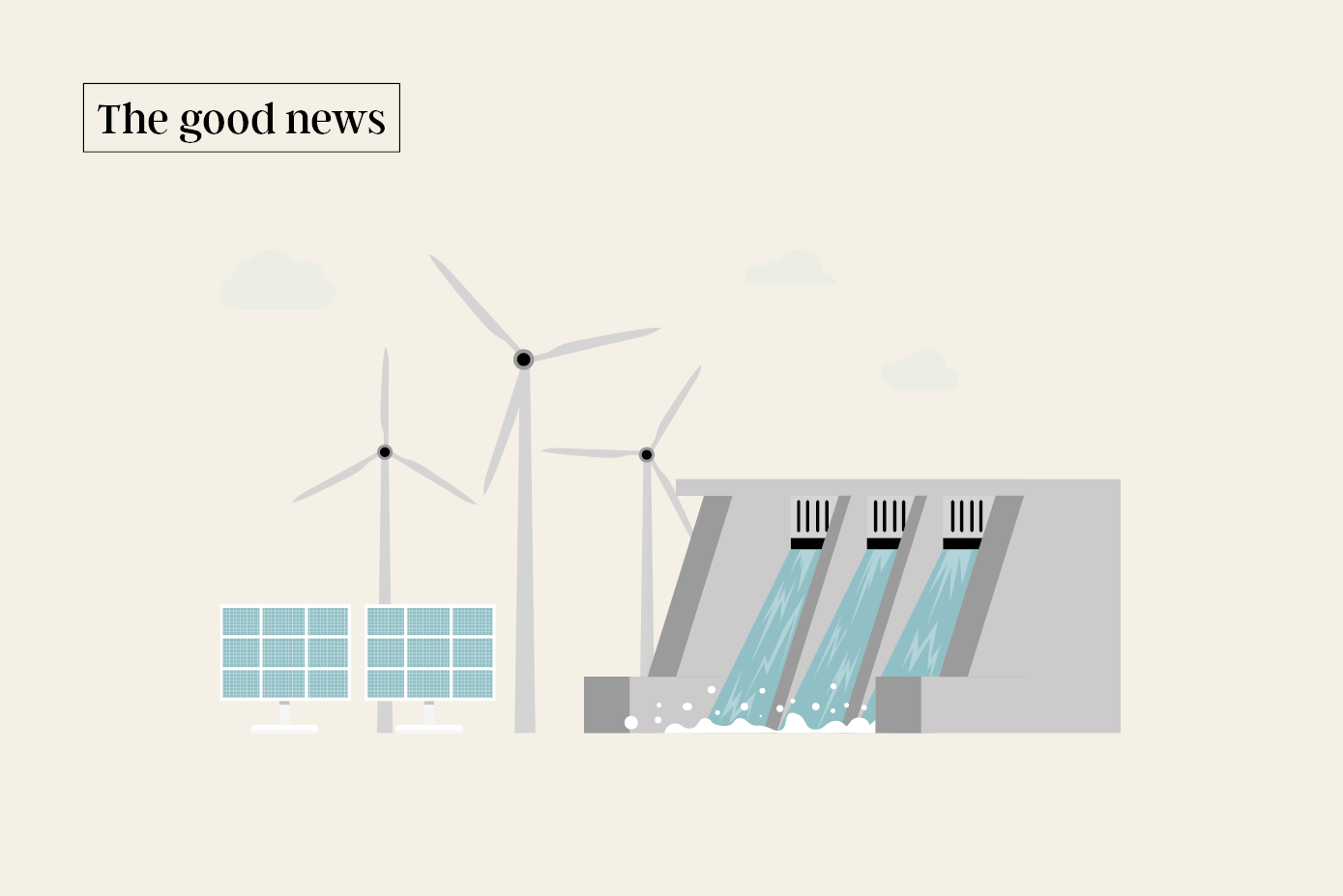Public finance
Fair taxes for Latin America
[ By Wolfram Klein ]
Latin America – followed by sub-Saharan Africa – is the most socially unequal region in the world. Even though democratically elected governments were predominantly in power over the past 20 years, inequality has increased further. Only in Mexico, Brazil and Chile did it decline somewhat in the past ten years. Given that Central and South America form a world region with middle incomes, the countries concerned should be able to combat extreme poverty by drawing on their own resources.
But that hardly ever happens. From 1990 to 2002, the population share of the absolute poor only fell from 11.3 % to 8.9 %. There are several reasons for progress having been so slow. First, government spending is often not adequately designed to reduce poverty. Second, state agencies frequently implement official policy in only an inefficient manner – partly due to corruption. Above all, however, state revenues often do not suffice as taxes are not levied systematically or efficiently enough. Therefore, most countries still depend on additional funding, be it through internal or external debt at market rates or official development assistance (ODA).
Systemic deficiencies
In the years 1990 to 2005, the taxes raised in Latin American amounted only to an annual average of 15 % of gross domestic product. Compared internationally, that rate is very low. The average tax ratio of the OECD countries is 36 %. Even China (17 %), India (18 %) and South Korea (24 %) report higher tax ratios than are common in Latin America.
Haiti, with 8.9 %, takes bottom place, and Brazil, with a tax ratio of 35.9 % is at the top. The tax ratios in Mexico, Colombia, Paraguay, Guatemala, Argentina, Costa Rica, El Salvador and Chile are particularly low. The UN Economic Commission for Latin America and the Caribbean (CEPAL) estimates that the tax ratio could be around 20 % on average without the region becoming internationally less competitive (Gómez-Sabaini, 2006).
Unlike in industrialised countries, neither the revenue nor the expenditure of public budgets in Latin America is structured in a socially balanced way. The better-off do not pay enough taxes, and the poor do not benefit sufficiently from state-run services. The problem of income and wealth already being unfairly distributed in society is thus further exacerbated. So far, only value-added taxes (VAT) are raised in up-to-date schemes in Latin America. This type of taxation, however, burdens consumption and accordingly weighs particularly heavy on all those who have to spend a large part of their income on day-to-day needs. The revenues from all other kinds of taxes remains inadequate (Perry, 2006). Income taxes would be especially relevant because they can be staggered progressively depending on the income level, forcing people who earn more to pay higher rates. According to CEPAL, VAT rates in Latin America increased from an average of 11 % to 15 % from 1990 to 2005, whereas income taxes – if levied at all – fell drastically.
Rising to the challenges
Debate on these matters is heating up. “Social cohesion” has become a topic of dialogue between the EU and Latin America, and it touches upon public finance. The matter might play an even greater role at the next EU-Latin America summit in Lima in 2008. In a deviation from classic orthodoxy, moreover, the World Bank’s 2006 Flagship Report for the region acknowledged that the goal was not simply to boost growth which will eventually benefit the poor (de Ferranti et al., 2006). Rather, the Report stated that Latin America needs a more equitable distribution of income and wealth as a precondition for faster and more sustainable growth which might help the poor. Most important of all, however, many elected governments in Latin America have begun to call for more social justice in the past few years.
No doubt, expectations are rising. And they had better. So far, too little has been done. This year, Uruguay, a country which is relatively homogenous in social terms, has started to impose an income tax; but in most other countries taxes on wealth and income still remain taboo. In many cases, it would be particularly important to tax unproductive large-scale land holdings.
Some countries are trying to improve their revenue services, stem corruption and thus raise additional funds. This approach is “progressive” in fiscal terms. After all, it is the rich who normally take advantage of legal and illegal loopholes in the tax code. Chile, El Salvador, Bolivia and Mexico have met with some success. In Peru, Ecuador and Guatemala, however, matters have become even worse then they were anyhow.
Other aspects of the revenue debate seem somewhat cynical. Apparently, many governments are most interested in harnessing remittances from migrants for development purposes. While it makes sense to discuss setting up special cooperative banks or investment funds for that purpose, this kind of transfer should not be taxed, for that measure would once again mainly hit disadvantaged people.
No doubt, many governments in Latin America are hoping that high – and perhaps even rising – commodity prices on the World market will boost their budgets. Venezuela is funding higher social spending with oil revenues, while in Bolivia, earnings from natural gas are supposed to serve that function. On top of that, access to credit has become easier in view of relatively low interest rates and the high liquidity of the international financial system. Therefore, many governments feel less pressed to rake in higher tax revenues. In may ways, it seems we are witnessing a revival of rent-seeking economies, which had long been believed dead in Latin America.
In any case, social awareness has grown. It is now widely understood that government expenditure must deliberately tackle poverty, and rightly so. Far too long, social nets have only tended to serve the middle classes, further marginalising the already disadvantaged in Latin America. Typically, the region’s countries have highly-subsidised social security systems for illness and old-age. However, the services they provided depend on how much an individual has paid in. Therefore, these subsidised insurance schemes primarily serve the well-off sections of the population, while they exclude the poor.
The same is true of government subsidies for vital infrastructures, including electric power, water provision or education. In rural areas – and that is where most poor people live – they are normally totally inadequate. And in the urban areas, they often focus on prosperous neighbourhoods.
Matters are changing slowly, however. So-called “net-cash transfer” programmes, which, for example, provide financial rewards if children from poor families attend school regularly, directly help to reduce poverty. Well-known examples are “Bolsa Familia” in Brazil or “Oportunidades” in Mexico. All summed up, however, the total volume of all such social-assistance programmes combined is still rather insignificant. Other means to promote pro-poor growth and higher productivity are microcredit schemes and vocational-training programmes. Both have not been used sufficiently.
Reform options
There are several starting points for reforms. According to CEPAL, closing legal and corruption-driven illegal loopholes would raise the tax share of GDP by around three percentage points on average. Doing so would also boost citizens’ confidence in their governments. Presently, such trust is very low – not least because of the “special levies” governments frequently collect when shortfalls in tax revenue become to substantial. Meanwhile, the common practice of regularly proclaiming official tax amnesties should de discontinued. These measures set all the wrong signals in deeply divided societies that need more cohesion.
There are several pre-requisites for reforms succeeding. For instance, transparent and credible institutions and procedures are essential. Revenue authorities, parliaments, the judiciary and civil society need to be strengthened. This is necessary when introducing or enhancing a moderately progressive income tax or implementing more stringent measures to control capital transfers.
Regional and subordinate authorities – above all the municipalities – also need more money. In many Latin American countries, they have important and ever growing tasks to fulfil. However, their revenues remain so low that it hardly makes sense to speak of effective local government. In some countries, comprehensive reforms are on the agenda, and German development agencies can do a lot to support such action.
Other steps would also be suitable for increasing tax revenues. However, they may be more difficult to implement. Formalising the small and tiny businesses that have been operating informally to date would make a difference. However, their competitiveness normally stems from low costs, and one should not over-estimate what they might contribute to government coffers. For emerging economies with reasonable productivity, such as Chile, Brazil and Mexico, it would be appropriate to tackle this issue. It may even make sense to tax cross-border transactions, provided that is done in a moderate way that neither scares international investors, nor affects the small, but often vital remittances sent home by migrants.
In any case, the tariffs for public services should be designed in a more progressive way. It is an ongoing scandal that tariffs do not even cover the current costs incurred by water and electric power utilities, even though it is mostly the rich who enjoy their services. A hot political debate is revolving around fair prices, privatisation versus nationalisation and fundamental rights of access to water and energy. Pragmatic change is possible – and it should be equally possible to convey that message. Would the rich pay cost-covering tariffs, governmental subsidies could be used to give more poor people access. And if the well-to-do were charged a surplus, the utilities themselves could cross-subsidise disadvantaged strata of the population in a tangible and visible expression of cohesive solidarity.
Political determination
In any case, the social impacts of any given government’s revenue and expenditure should be observed more closely and better aligned to one another. Doing so, however, requires skills that are not always available. Moreover, there is often a lack of political will.
A government’s determination, however, is essential if its revenue and expenditure are supposed to be socially equitable. Issues of fairness and taxes are, of course, always very sensitive and have to be dealt with at the domestic level. Foreign agencies are not normally influential in this field. Germany and the EU are therefore predominantly providing our partners with opportunities for dialogue, in order to share experiences and exchange ideas. Hopefully, reform-minded, pragmatic political leaders, many of whom have been elected in recent years, will take interest.
In specific cases, direct advice may be in demand. German development agencies have a lot to offer in this context, regarding, for instance, tax law and administration, auditing bodies at the national as well as local levels, and control through parliaments, the judiciary and civil society. German agencies are active across many countries. Strategic partnerships with the Inter-American Development Bank and CEPAL are also pointing in the right direction.
Finally, budget support, which is about donors pooling funds in order to contribute to recipient countries budgets, provides another opportunity for engaging in constructive dialogue. This instrument is particularly relevant in poorer countries like Nicaragua, Honduras or Bolivia. Donor committees are already paying increasing attention to making sure that their money is not crowding out domestic revenues. Rather, they want recipient countries to make efforts themselves to generate higher tax revenues and use them in the fight against poverty. First agreements have already been reached.








